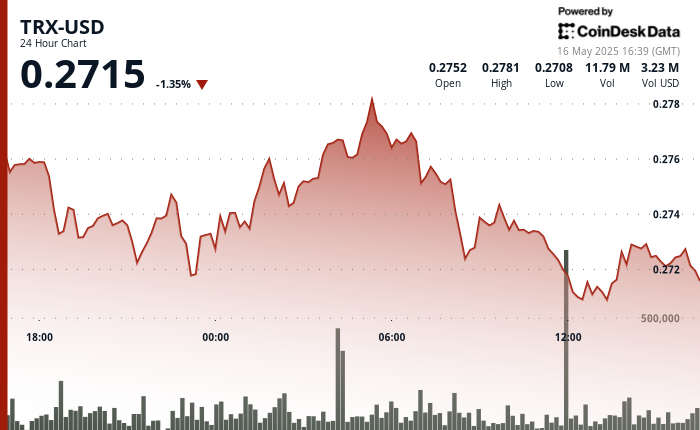Bitcoin's Price Stability at Risk From Potential 'Basis Trade Blowup' That Catalyzed the COVID Crash


Bitcoin's Price Stability at Risk From Potential 'Basis Trade Blowup' That Catalyzed the COVID Crash
Market volatility poses risk to $1 trillion Treasury basis trades. A potential blowup could trigger a global dash for cash.
- Bitcoin's stability amid Nasdaq turmoil suggests its potential as a haven asset, though bond market risks remain.
- A potential blowup of the $1 trillion Treasury basis trade could trigger a global dash for cash, leading to selling of all assets, including bitcoin.
- Similar dynamic played out in mid-March 2020 when the basis trade talled $500 billion.
Bitcoin's Price Stability at Risk from Potential 'Basis Trade Blowup' Amid Market Volatility.
Treasury basis trade risks
Concerns arise over the stability of Bitcoin's price due to potential risks related to the $1 trillion Treasury basis trades, which could spark a worldwide rush for cash.
The recent tumultuous Nasdaq situation has showcased Bitcoin's resilience amidst market turmoil, hinting at its appeal as a safe-haven asset. However, uncertainties lurk within the bond market.

The possibility of a blowup in the massive $1 trillion Treasury basis trade looms large and could instigate a global scramble for liquidity, resulting in widespread asset sell-offs, possibly including bitcoin. This scenario is reminiscent of events from March 2020 when similar trades reached $500 billion.
Recent developments have seen Nasdaq plummeting by 11% following President Donald Trump's announcement of reciprocal tariffs on numerous nations. This move has intensified trade tensions globally, prompting retaliatory measures from China. The impact has been felt across U.S. indices and international markets, with risk currencies like the Australian dollar taking hits alongside gold experiencing pullbacks.
Despite current market conditions, there are concerns that sharp downward volatility may persist in the near term. The "Treasury market basis trade" faces inherent risks due to increased turbulence in bond prices.

Robin Brooks, Managing Director and Chief Economist at the International Institute of Finance, highlighted that heightened market volatility exposes highly leveraged carry trades to significant risks. The considerable size of the basis trade now at $1 trillion raises apprehensions since even a slight one-basis-point shift in Treasury yields could trigger a substantial $600 million value swing in these bets.
Given this precarious situation, any surge in Treasury yield volatility akin to what occurred during the COVID-induced crisis could initiate a chain reaction leading to extensive asset liquidation involving bitcoin to raise cash.



